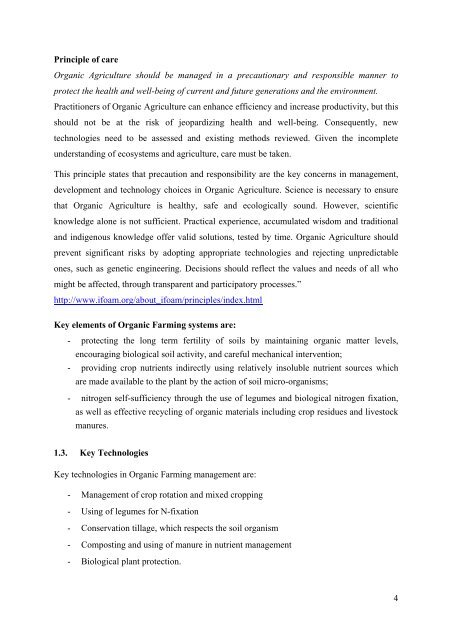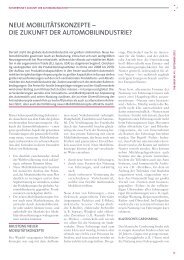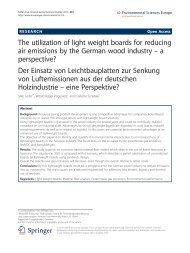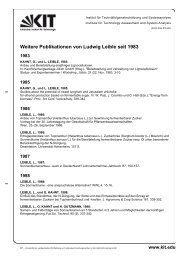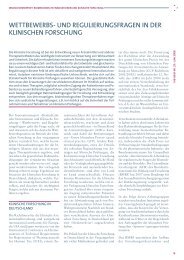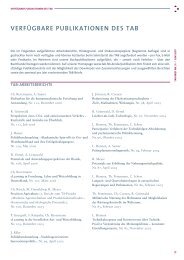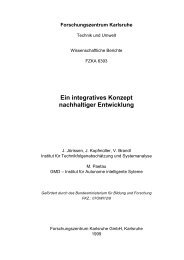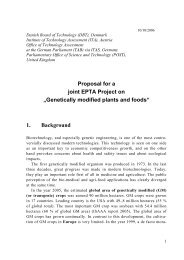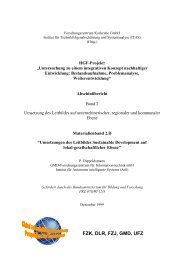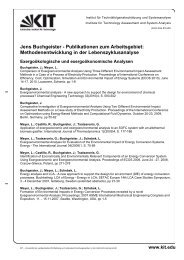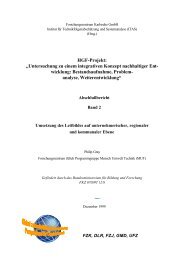Annex 4: Case study âOrganic Farmingâ - ITAS
Annex 4: Case study âOrganic Farmingâ - ITAS
Annex 4: Case study âOrganic Farmingâ - ITAS
Create successful ePaper yourself
Turn your PDF publications into a flip-book with our unique Google optimized e-Paper software.
Principle of care<br />
Organic Agriculture should be managed in a precautionary and responsible manner to<br />
protect the health and well-being of current and future generations and the environment.<br />
Practitioners of Organic Agriculture can enhance efficiency and increase productivity, but this<br />
should not be at the risk of jeopardizing health and well-being. Consequently, new<br />
technologies need to be assessed and existing methods reviewed. Given the incomplete<br />
understanding of ecosystems and agriculture, care must be taken.<br />
This principle states that precaution and responsibility are the key concerns in management,<br />
development and technology choices in Organic Agriculture. Science is necessary to ensure<br />
that Organic Agriculture is healthy, safe and ecologically sound. However, scientific<br />
knowledge alone is not sufficient. Practical experience, accumulated wisdom and traditional<br />
and indigenous knowledge offer valid solutions, tested by time. Organic Agriculture should<br />
prevent significant risks by adopting appropriate technologies and rejecting unpredictable<br />
ones, such as genetic engineering. Decisions should reflect the values and needs of all who<br />
might be affected, through transparent and participatory processes.”<br />
http://www.ifoam.org/about_ifoam/principles/index.html<br />
Key elements of Organic Farming systems are:<br />
- protecting the long term fertility of soils by maintaining organic matter levels,<br />
encouraging biological soil activity, and careful mechanical intervention;<br />
- providing crop nutrients indirectly using relatively insoluble nutrient sources which<br />
are made available to the plant by the action of soil micro-organisms;<br />
- nitrogen self-sufficiency through the use of legumes and biological nitrogen fixation,<br />
as well as effective recycling of organic materials including crop residues and livestock<br />
manures.<br />
1.3. Key Technologies<br />
Key technologies in Organic Farming management are:<br />
- Management of crop rotation and mixed cropping<br />
- Using of legumes for N-fixation<br />
- Conservation tillage, which respects the soil organism<br />
- Composting and using of manure in nutrient management<br />
- Biological plant protection.<br />
4


